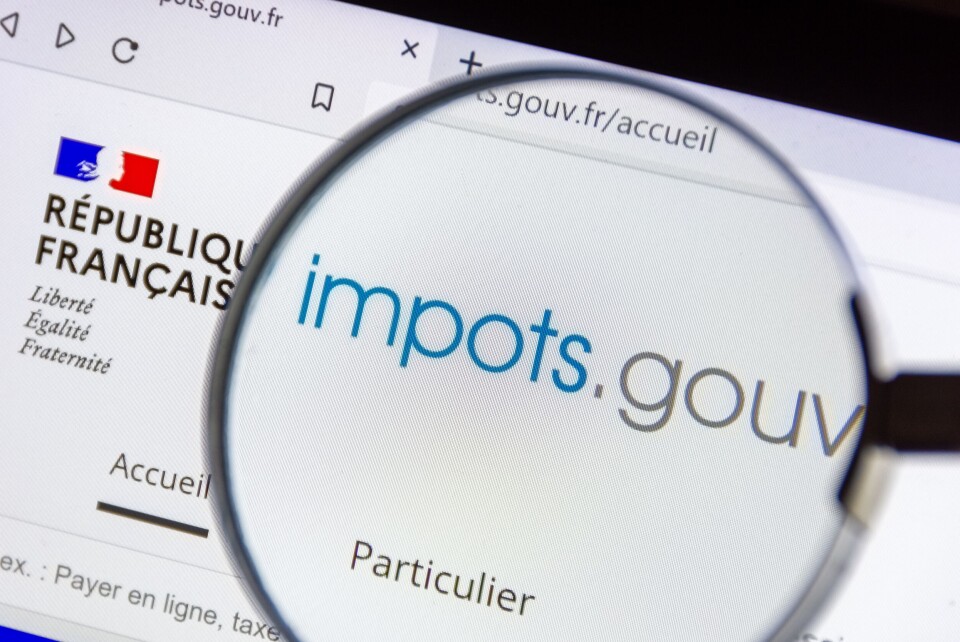-
These are the 2025 income tax declaration deadlines, by department in France
Paper returns have a separate earlier deadline
-
Taxes, border rules: Dates to note for practical changes in France in April 2025
Notaire fees are also set to rise and a rail strike looms over the Easter holidays
-
How to value a property for France's wealth tax
Here is how to check if you have to pay the impôt sur la fortune immobilière (IFI) – and how much it will be
Warning over French tax rebate email scam
As this year’s tax return window opens, scams involving rebates are popping up again. Here’s how to avoid falling victim to them

A consumer association in France has issued a warning over a scam involving an offer of a tax rebate.
The swindle returns every year when the dedicated website for income declarations opens, said 60 Millions de consommateurs, which this year is on Thursday (April 13).
Read more:
- Five musts when you fill out your French tax return
- Need to declare income in France? Here is when and where you can do it
- Tax declaration forms are on their way to some French homes
How does the scam work?
The association warned that taxpayers should be alert to letters that appear to come from la Direction générale des finances publiques (DGFiP).
The emails appear genuine and may feature the DGFiP logo, with similar formatting and fonts. They promise a tax rebate.
They may read similar to: “Nous avons le plaisir de vous informer que suite à notre traitement de votre déclaration de revenus, nous avons calculé que vous avez droit à un remboursement d’impôt d’un montant de €115,49.”
This translates as: “We have the pleasure of informing you that following our processing of your revenue declaration, we have calculated that you are due a tax rebate of €115.49.”
The email then explains that to receive the money, you must go to a dedicated website, to “check that all the information concerning your account is correct”.
The website then asks you to put in your bank details, under the pretence of checking that your tax rebate will go to the right account.
However, this is a scam by criminals, who will then have access to your account. In reality, there is no rebate, and you now risk having money stolen directly from your account.
How can I tell that it is a scam?
You should be suspicious of anything that asks you to confirm your bank details, asks you to enter them in full on any website or app, or offers you money ‘out of the blue’.
If you have automatic payments in place for your taxes, or you have already paid online before, you should not have to re-enter your details. If you pay by cheque, no bank details are required at all.
Other clues that the email is a scam may include the email address it comes from. 60 Millions de Consommateurs received an email from the address ‘406900938540@surview.ae’, which is clearly not legitimate.
However, other email addresses and details may not be quite so obvious. They may have been designed to appear very close to official addresses and may have URLs that are very close, too.
In previous years, scam email addresses have included ‘ne_pas_repondre@dgfipfinances.gouv.fr’ and other similar addresses that look legitimate, with the ‘gouv.fr’ ending and ‘dgfipfinances’ included. Even addresses with these details can be fake.
Look out for tiny punctuation or spelling errors, strange characters, or dashes and dots where they would not normally appear. Some emails may also have low-quality or stretched images, and contain spelling errors.
What if I suspect a scam?
Do not click on any links, nor enter any personal or bank details. If you are in any doubt about a tax rebate - or anything about taxes - you should contact your local tax centre.
You can find contact details and several methods of getting in touch with the tax service on its official website contact page here.
If you suspect a scam, you can also report it to the official reporting platforms Pharos, Signal Spam, or Cybermalveillance.gouv.fr.
Our Income Tax in France 2023 (for 2022 income) Helpguide is now available in digital format. Get it here.
Related articles
Warning over new income tax declaration scams in France
French tax refund scam being circulated by email
Beware: French tax reimbursement email is a phishing scam
























